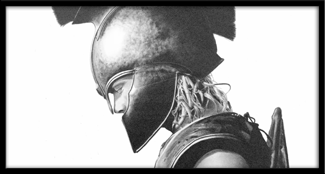–noun, plural -phies.

1. the rational investigation of the truths and principles of being, knowledge, or conduct.
2. any of the three branches, namely natural philosophy, moral philosophy, and metaphysical philosophy, that are accepted as composing this study.
3. a system of philosophical doctrine: the philosophy of Spinoza.
4. the critical study of the basic principles and concepts of a particular branch of knowledge, esp. with a view to improving or reconstituting them: the philosophy of science.
5. a system of principles for guidance in practical affairs.
6. a philosophical attitude, as one of composure and calm in the presence of troubles or annoyances.
Once again, the (self-proclaimed) resident educator is back with a post - this time, on the theory of knowledge. You see, most people feed off information given to them, but only a select few actually process them and evaluate their validity and soundness. So what makes for a valid argument, and are all valid arguments necessarily true? If this piques your interest then you might just want to be exploring a little more about philosophy.
Contrary to what some people think, philosophy is not plainly about preaching ethics, or about right or wrong. Philosophy also has to do with synthesising knowledge, questioning information and evaluating arguments. And it isn't as boring as what most people believe it to be!

Achilles was known to the Greeks as a very fast runner. So it looked as though a race between Achilles and a tortoise would be a pretty fair bet - even if the tortoise is allowed something of a headstart. But there are complications.
1. Before Achilles can overtake the tortoise, he must catch up with it.
2. No matter how fast Achilles is, and he is fast, it will take him some time to reach the place where the tortoise started from.
3. No matter how slow the tortoise is, and it is slow, it will during this time have moved at least a bit further on in the race.
4. This will apply for the next bit of the race too - Achilles will rush to where the tortoise got to whilst he was making up the tortoise's headstart, and the tortoise will move on again. A bit less far this time, certainly, but a bit none the less. He is always getting closer, but never makes up the lost ground completely.
Achilles will certainly, with his celebrated speed, soon get very close behind the tortoise - but why can't he, logically speaking at least, ever overtake the reptilian competitor?
melvin



























|